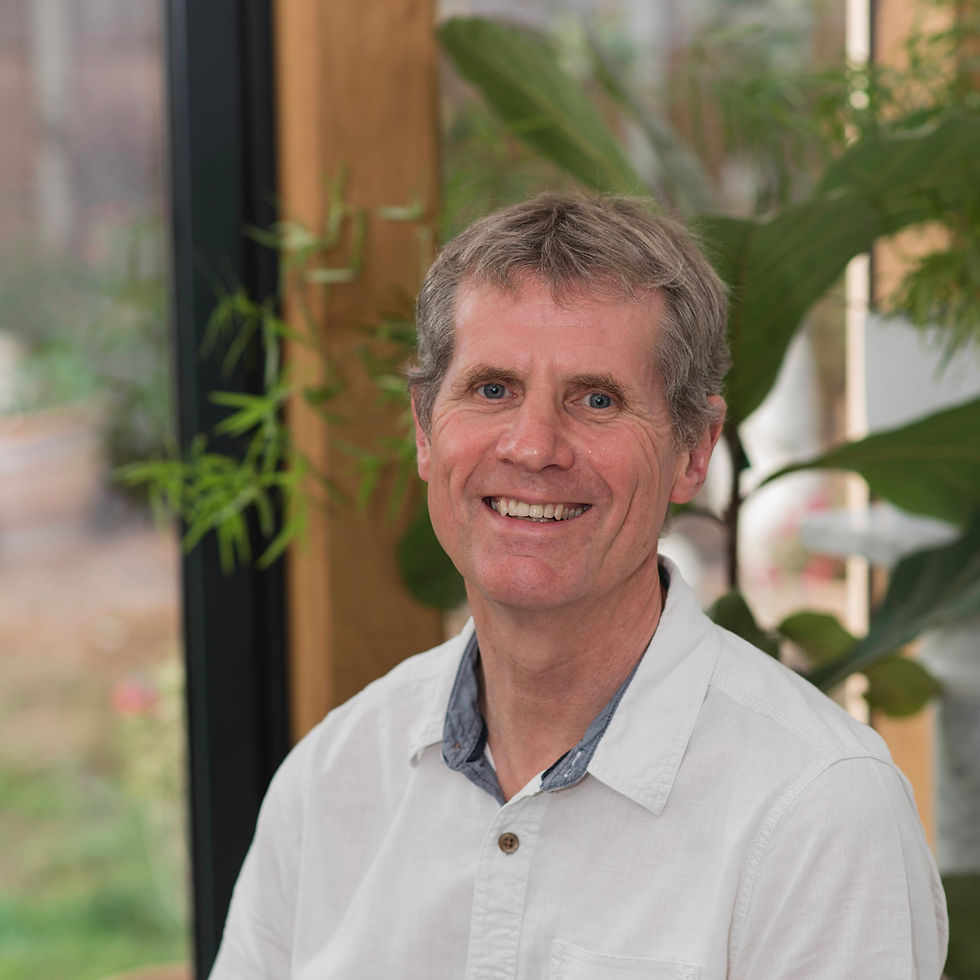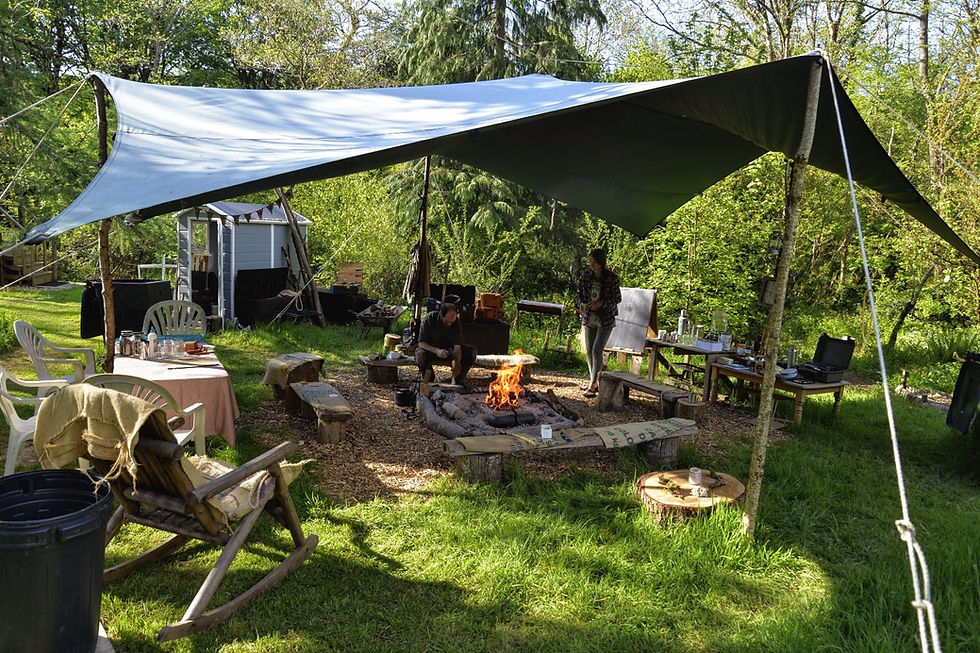The Digital Detox Coach
- Kristy

- Aug 17, 2025
- 5 min read
Updated: Aug 18, 2025
I remember that feeling. The one that I couldn’t ignore. There was something that I just had to act on...

It feels like a lifetime ago now but I do remember that very specific pull. It was there in my pocket. I told myself I was only going to check that one notification and then put it away again. But actually there’s this other thing to look at too, just a quick thing, oh and while I’m here I’ll just…
As well as the temptation of ‘just one more check’, ‘one more scroll’, I also found that when I was in public by myself with nothing to do I would reach for my pocket to pull out my phone. Not content in my own skin to just be. What if I look awkward? It’s okay, I have my phone. I’ll look busy.
Now I live life without a smartphone and I can’t imagine going back. It’s entertaining when some people find out that I don’t have a smartphone. They react as though I must live in a cave, cut off from everything. I’m not disconnected from the technological world. I’m typing this on my laptop. I have a desk, a space I go to sit when I’m working or want check something online. It doesn’t follow me around, constantly beeping at me, encouraging me to click here or swipe there. I don’t miss that distraction, and I was easily distracted...
I now live a life where the constant distractions are not notifications from devices but those of my little boy. Notification of his hunger - wanting to know what the next food is and when it’s coming, his thirst for knowledge with his constant questions. It does make me happy knowing that due to the lifestyle change my partner and I made, our little boy is not growing up thinking that devices are an extension of us, whilst inevitably falling into the same negative patterns we’d fallen into before he’s even had chance to develop a real sense of who he is in the world.
I have used social media (too much) in the past and have now moved away from it. We actively decided not to set Project Holding Space up with pages on social media platforms. However, I did decide to make the exception with LinkedIn. I saw it as a valuable tool, to be able to network with others working professionally in the digital wellbeing field, and I’m glad I did. It opened my eyes to just how big of a problem social media addition is, especially with children and teenagers. It also enabled me to connect with Colin Corby of the Digital Detox Coach. Colin has been a wonderful source of knowledge and a great support for Project Holding Space and what we are doing and offering. We’ve worked on putting together a resource booklet for people who come to our events to take home with them. It feels really important to us to make sure people have something they can refer to and use as a way of integrating digital wellbeing practises into their everyday life and we are so happy and grateful for Colin to have helped us with this. We are currently in talks with him about developing this further in the future.
Colin is doing really important work with people who are wanting to find a better balance with their use of technology and I wanted to take this opportunity to enable him to share some of his experiences and insights into how we can all make time to disconnect in these ‘always on’ times.
Kristy: Colin, could you explain how you came to be The Digital Detox Coach?
Colin: I had a great job in technology but in my mid-thirties I started to regularly pass out at work due to stress. I found that exercise through swimming trained my heart and body to be much more resilient to stress. But by around 2015, I found that I was spending more and more time on my laptop and smartphone, and I was struggling to find time to exercise, the very thing that had brought balance back to my life. So after lots of research, in 2018 I created ‘The Digital Detox Coach’ and made it my mission to share my knowledge and experience to help other busy people find the time, energy and space to live a healthier, more productive and sustainable life with technology.
Kristy: What does digital detox mean to you?
Colin: My definition of digital detox is simply a period of time when you’re disconnected from smartphones, iPads and computers and you’re offline. It can be as short as 20 seconds, if you are resting your eyes from staring at a screen, or as long as spending a week in nature, and everything in-between. You can think of it as your digital habit ‘off switch’. For me digital detox is not a one off event, rather a lifestyle change, one that supports your wellbeing and becomes part of your daily life.
Kristy: Why do you think it’s important that people incorporate digital detox practices into their lives?
Colin: We often forget that we are biological animals, and we need to have good quality sleep, a healthy diet, exercise, human connections and spend time in nature in order to live a healthy life and be at our best. So we need to regularly disconnect to be successful and productive at work and to look after ourselves and others we care for.
Kristy: What would you say to someone who said they wouldn’t be able to be without their phone?
Colin: Digital detox is not about giving up your smartphone completely, rather using it where it adds real value to your life and disconnecting from it when you have more important things to do. However, because we carry our smartphones around with us, they have become the ultimate corporate marketing tool and many people find it extremely hard to break free, even for short periods of time. The first step in digital detox is self-awareness of your current digital habits and to reflect on whether this really is the life you want for yourself and others you care about. If not, then taking regular digital detoxes can help you achieve a much better balance.
Kristy: What has been your favourite digital detox experience and why?
Colin: I actually have two favourites at the moment: the first one just makes me laugh at how ingrained and automatic our digital habits are and it’s my “just one thing” challenge. How many times have you picked up your smartphone with the intention of checking the weather or searching for something on google, but you end up checking all your favourite apps and maybe forgetting to do the one thing that you had intended to do. So my “just one thing challenge” is that you are only allowed to do one thing on your smartphone and then disconnect before you can do another one thing. The second one is when you are with friends or family and end up laughing together over something silly. It’s such a wonderful feeling of connection.
Kristy: If anyone reading this is interested in taking this further, how can you help them and how can they contact you?
Colin: We all have to be online to be able to live and work in the digital world, so the website is a good place to start. However I would encourage people to book a discovery call so we can connect at the human level.

Visit the website
Book a discovery call
.png)



Thank you Kristy for the lovely interview and the great work you are doing at Project Holding Space.